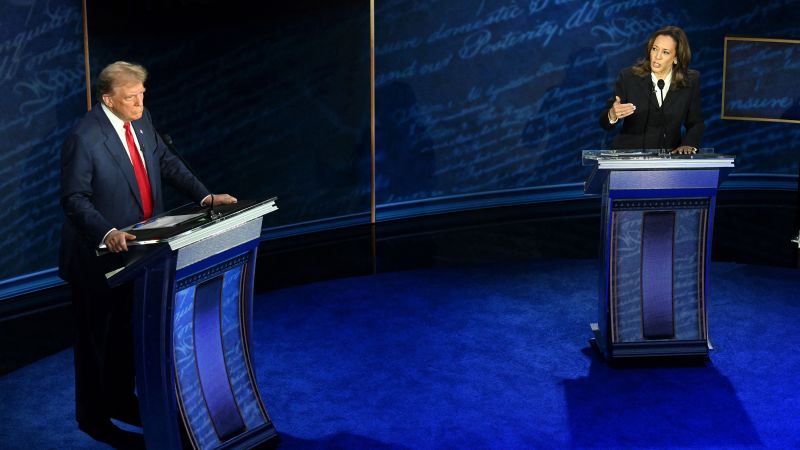Former President Donald Trump and Vice President Kamala Harris are not making an effort to address the growing budget deficit in the United States. Both of their economic policy agendas are projected to add to the deficit, which is a major issue that cannot be taken lightly. A budget deficit occurs when a country spends more money than it collects in revenue, leading to borrowing to cover the shortfall. The US is already deeply in debt, with publicly held federal debt totaling almost as much as the entire US economy.
Federal Reserve Chair Jerome Powell has expressed concerns about the escalating deficit and debt levels, calling for an adult conversation among elected officials to address the issue. Despite the importance of the budget deficit, it was hardly mentioned during the Trump-Harris presidential debate, with neither candidate proposing measures to reduce it. The debt contributions from both candidates’ plans could undermine their agendas aimed at helping American families, according to the president of the Committee for a Responsible Federal Budget.
During past presidential debates, candidates have discussed the importance of addressing the budget deficit and reducing government spending as a means to achieve fiscal responsibility. However, despite these discussions, the deficit has continued to grow over the years. President Barack Obama and Senator Mitt Romney clashed over whose plan would be better for the deficit during the 2012 election, but the deficit still increased during Obama’s presidency. President Trump briefly mentioned the deficit during his debates with Hillary Clinton but failed to address it effectively during his time in office.
Wider deficits can lead to increased borrowing from foreign countries to fund US debt, which poses risks to the economy and national security. Higher levels of debt can also result in inflation and slow economic growth, making it more difficult for everyday Americans to obtain loans like mortgages. Interest payments on debts can consume a significant portion of government spending, limiting investments in areas like infrastructure. The increasing dependency on foreign countries to buy US debt raises concerns about national security and economic stability.
The lack of attention to the budget deficit by Trump and Harris can be attributed to politicians’ preference for short-term wins over long-term fiscal responsibility. Both sides are focused on implementing their policies without making sacrifices, but eventually, tough choices will need to be made about cutting spending and increasing taxes. The impact of Covid-19 and the Great Recession has made Americans overlook the problems associated with rising debt levels, with many viewing government borrowing as a positive effect during crises. However, reducing the debt burden could lead to faster economic growth and sustained funding for social safety net programs.


